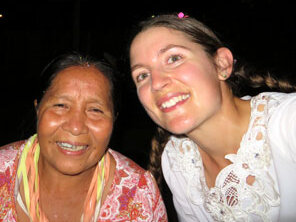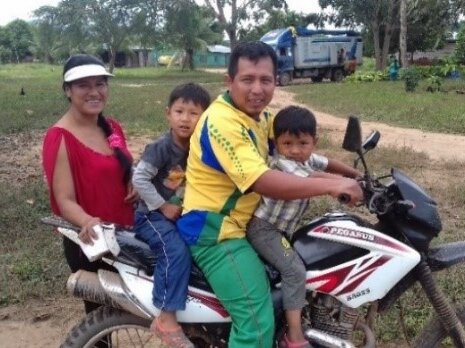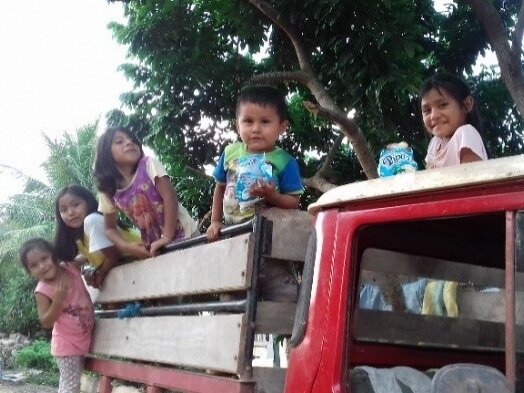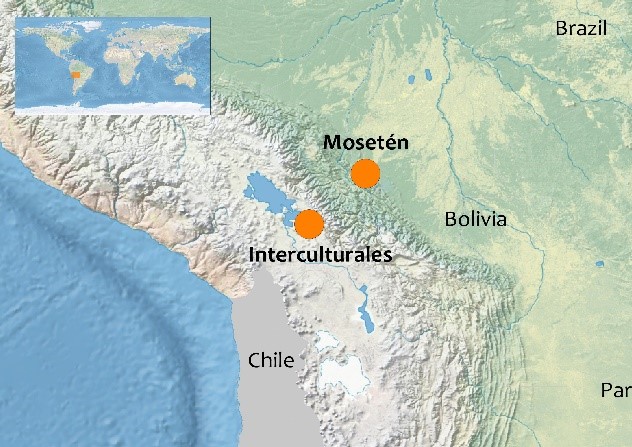Interculturales and Mosetén – Lowland Bolivia



Site Details
The Interculturales (a pseudonym) and Mosetén are horticulturalists living in the Bolivian lowlands. Both are Indigenous communities, although Interculturales no longer live in their traditional homelands: Mosetén have been living in this region since at least the time of European contact, while Interculturales, who are mostly of Andean descent, moved to the area to harvest quinine and timber, and as part of a government-sponsored colonization program in the 1950s and 60s. Anne Pisor collaborates with two communities with road, water, electricity, and cellphone access; roads arrived to the Intercultural community in the 1970s and to the Mosetén community in 2000. Families grow and sell cash crops (especially chocolate, citrus, papaya, and plantain), work in the timber industry, and engage in migrant labor. Intermarriage and friendship between Indigenous groups is extensive.
Research
Anne Pisor has primarily focused on social relationships like friendship and godparent ties that cross group boundaries and distance in these communities. She has found that while long-distance social relationships are key to making life work for families in the 21st century, relationships between Indigenous groups do not necessarily provide the same resource access – and are so common, many people do not know their friends’ ethnic identities.
Website: www.pisor-lab.com
Selected Publications
Pisor, A. C., & Ross, C. T. (2022). Distinguishing intergroup and long-distance relationships. Human Nature, 33, 280-303. doi: 10.1007/s12110-022-09431-1.
Pisor, A. C., & Jones, J. H. (2021). Do people manage climate risk through long-distance relationships? American Journal of Human Biology, 33(4), e23525. doi: 10.1002/ajhb.23525.
Pisor, A. C., Gervais, M. M., Purzycki, B. G., & Ross, C. T. (2020). Preferences and constraints: The value of economic games for studying human behavior. Royal Society Open Science, 7(6), 7192090. doi: 10.1098/rsos.192090.
Pisor & Gurven (2016) Risk buffering and resource access shape valuation of out-group strangers. Scientific Reports 30435. [Article]
Pisor, A. C., & Gurven, M. (2017). When to diversify, and with whom? Choosing partners among out-group strangers in lowland Bolivia. Evolution and Human Behavior. [Article]
